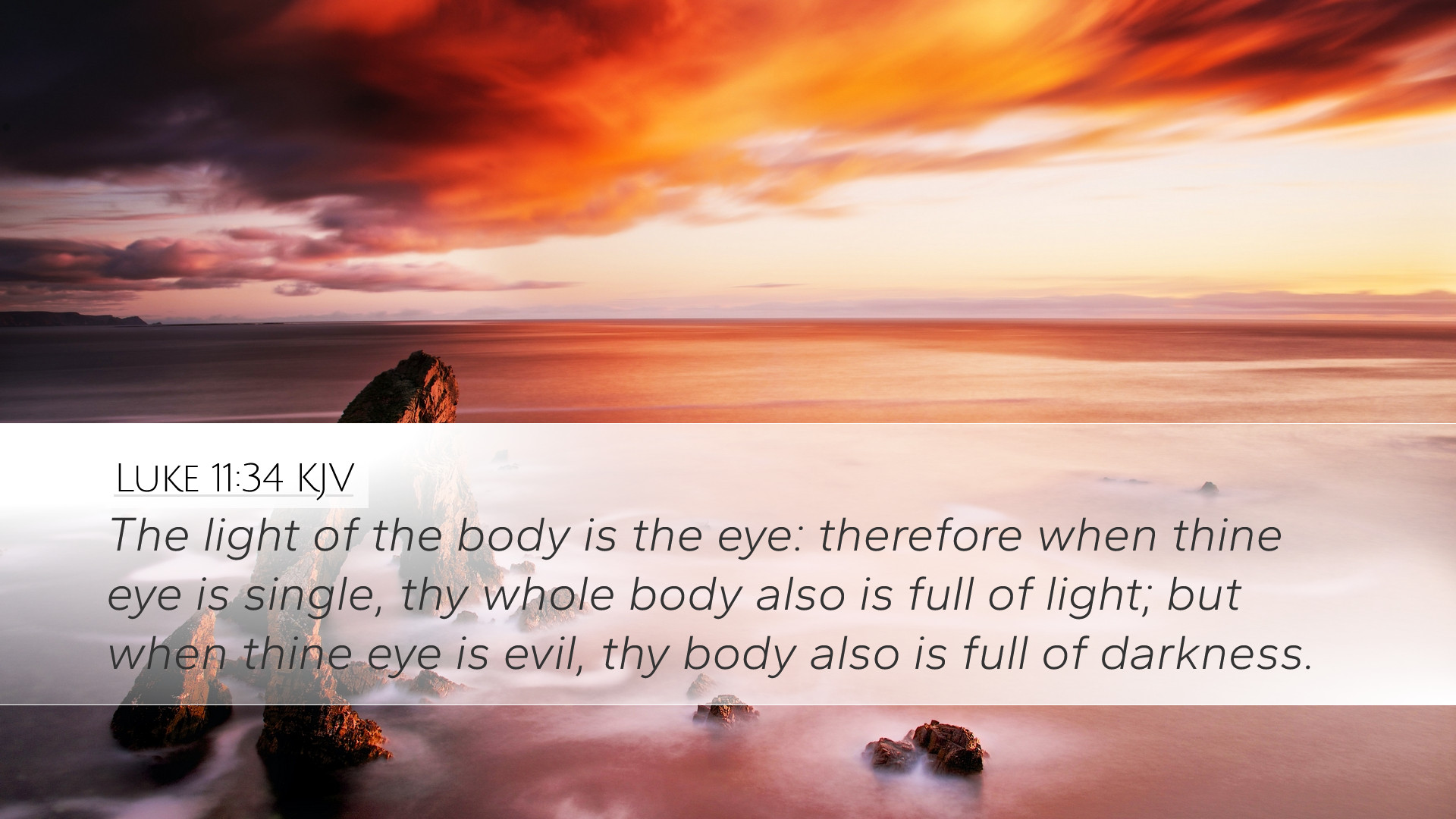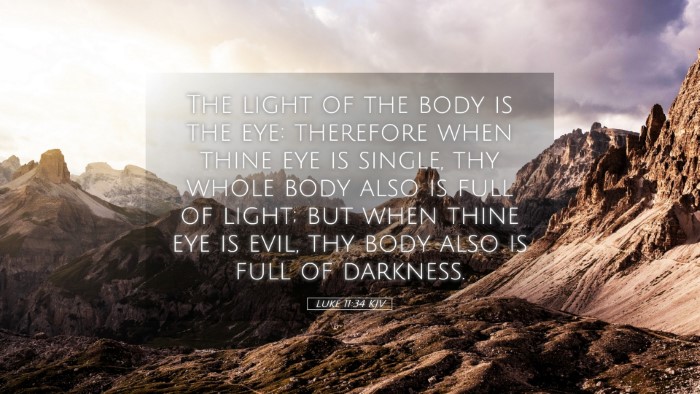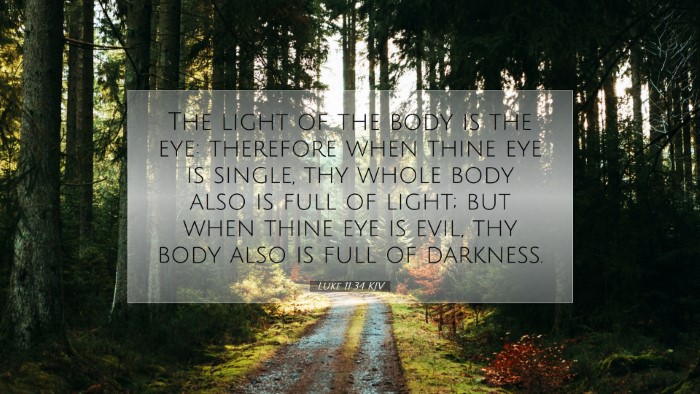Commentary on Luke 11:34
Luke 11:34 states, "The eye is the lamp of the body. When your eye is healthy, your whole body is full of light; but when it is bad, your body is full of darkness." This verse emphasizes the importance of perception and spiritual vision within the Christian life. Analyzing insights from renowned public domain commentaries provides a deeper understanding of its implications.
Introduction
This passage is part of a larger discourse in which Jesus speaks about the conditions of the heart and the clarity of vision. It illustrates a profound spiritual truth: the health of one’s spiritual perspective greatly influences the entirety of one's being.
Matthew Henry's Commentary
Matthew Henry presents this verse within the broader context of spiritual awareness. He notes:
- This metaphor of the eye serves as a representation of the understanding and intentions of a person. Just as light in the eye is necessary for physical sight, spiritual insight is essential for understanding divine truths.
- The 'healthy eye' refers to a mind that perceives and values spiritual matters rightly. When one sees spiritually, it brings clarity and purpose to the individual’s life.
- Conversely, a 'bad eye' suggests a misguided perception. Such a perspective leads to a life overshadowed by darkness, which signifies ignorance or moral corruption.
Albert Barnes' Commentary
Albert Barnes further elaborates on the spiritual implications of this passage:
- Barnes emphasizes that the eye must be 'single' or clear, indicating a focused vision on God's truth without distraction or moral ambiguity. This clarity not only leads to personal insight but also impacts the community and church at large.
- He draws attention to the ramifications of a 'bad eye.' This condition leads to spiritual darkness, affecting how individuals perceive themselves, God, and others. A negative outlook can foster sinfulness and a departure from God’s ways.
- The correlation of the eye to the body illustrates a holistic view—spiritual health is interconnected with physical and emotional states. A purified vision fosters a whole person, affecting thoughts, actions, and relationships.
Adam Clarke's Commentary
Adam Clarke provides an intricate analysis of the Greek terms used in this verse:
- Clarke explains that the term for 'lamp' can denote an illuminating source which implies that spiritual enlightenment comes from a well-tuned eye, reflecting one's deep internal state.
- He notes the idea that an 'evil eye' goes beyond mere moral failing; it symbolizes a heart that is envious, proud, or corrupt. This creates a barrier to perceiving the light of God's truth.
- In practical applications, Clarke posits that believers should strive for spiritual clarity through regular prayer, meditation on Scripture, and community accountability, ensuring their perspectives align with God's will.
Spiritual Implications
The collective insights from these commentators lead to significant implications for spiritual leaders and believers:
- Self-Examination: Pastors and students of the Word should engage in self-examination regarding their spiritual sight. Are they seeing life through a lens of faith, or has darkness influenced their vision?
- Holistic Approach: The integrative nature of this passage emphasizes that spiritual well-being reflects in various aspects of life. A healthy spiritual life results in a physically and emotionally balanced individual.
- Community Impact: Leaders should recognize their influence on the church body. A healthy spiritual eye among leaders fosters a culture of light, promoting growth, understanding, and community.
- Discernment: Students and theologians should strive for discernment in interpreting Scripture and applying its truths. A clear understanding prevents misleading interpretations that can lead others into darkness.
Conclusion
Lukes's message in 11:34 serves as a critical reminder of the importance of inner vision and spiritual health. By considering the insights of Matthew Henry, Albert Barnes, and Adam Clarke, we glean a more profound understanding of the necessity for believers to maintain a focus on God’s light. When the eye remains healthy, the entirety of one's life is illuminated, leading to clarity of purpose and direction in a world filled with spiritual darkness.


